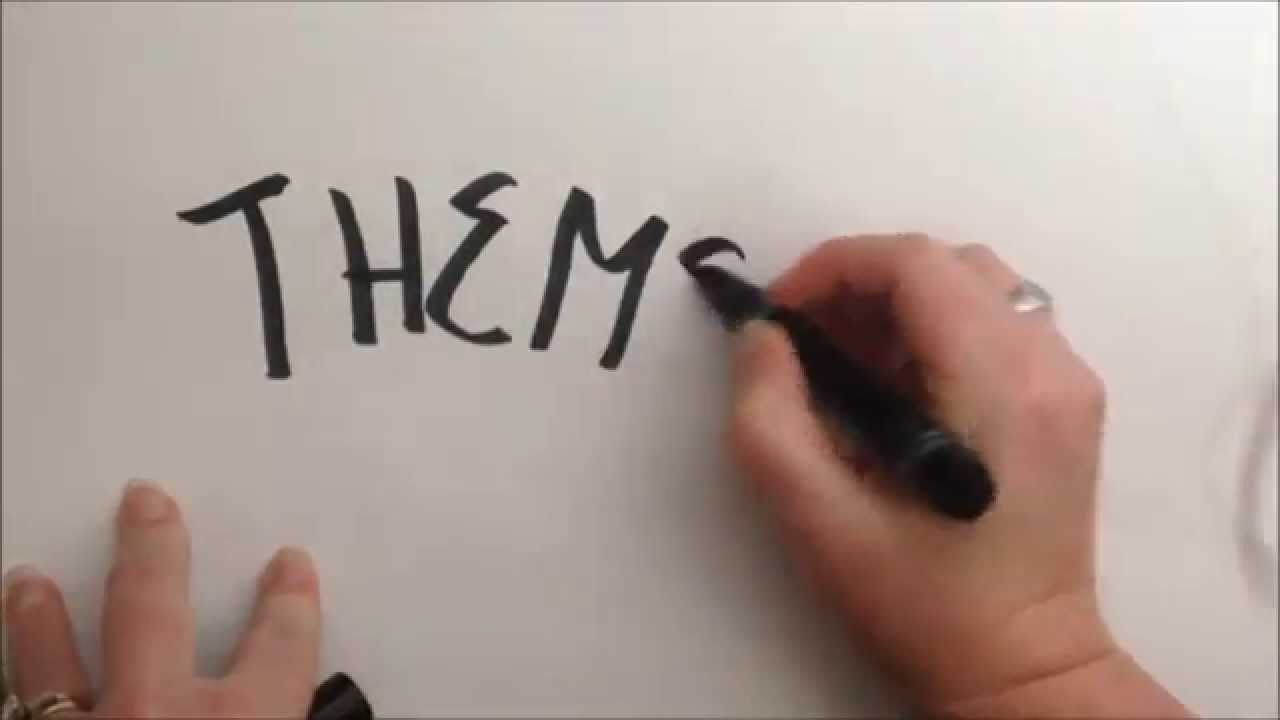
Understanding Themes in Literature
Interactive Video
•
English
•
6th - 10th Grade
•
Practice Problem
•
Medium
+2
Standards-aligned

Wayground Content
Used 4+ times
FREE Resource
Enhance your content in a minute
10 questions
Show all answers
1.
MULTIPLE CHOICE QUESTION
30 sec • 1 pt
What is the primary difference between a theme and a topic in literature?
Themes are directly stated by the author, whereas topics are inferred by the reader.
There is no significant difference; both terms can be used interchangeably.
Topics can only be identified in non-fiction, while themes are exclusive to fiction.
Themes are more complex and require deep analysis, while topics are surface-level subjects.
Tags
CCSS.RI. 9-10.9
CCSS.RL.6.2
CCSS.RL.7.2
CCSS.RL.8.2
CCSS.RL.9-10.2
2.
MULTIPLE CHOICE QUESTION
30 sec • 1 pt
Why is 'Finding Nemo' chosen as an example to explain themes?
Because it's a complex narrative with multiple hidden meanings.
It was randomly selected without any specific reasoning.
It's universally recognized and simplifies the understanding of themes.
Due to its literary acclaim and extensive analysis in academic circles.
Tags
CCSS.RI. 9-10.9
CCSS.RL.6.2
CCSS.RL.7.2
CCSS.RL.8.2
CCSS.RL.9-10.2
3.
MULTIPLE CHOICE QUESTION
30 sec • 1 pt
What is the first step in creating a theme statement according to the video?
Discussing the plot with peers.
Completing the reading of the text.
Identifying the author's background.
Listing all the characters in the story.
Tags
CCSS.RI. 9-10.9
CCSS.RL.6.2
CCSS.RL.7.2
CCSS.RL.8.2
CCSS.RL.9-10.2
4.
MULTIPLE CHOICE QUESTION
30 sec • 1 pt
How should a theme statement be structured?
Using complex literary terms to sound more academic.
It should be a direct quote from the text.
Starting with 'The author believes that...' and excluding character names.
By using specific character names and events from the story.
Tags
CCSS.RI. 9-10.9
CCSS.RL.6.2
CCSS.RL.7.2
CCSS.RL.8.2
CCSS.RL.9-10.2
5.
MULTIPLE CHOICE QUESTION
30 sec • 1 pt
What is an example of a too vague theme statement?
Trust is essential for personal growth.
Courage can be found in the most unlikely places.
Family is important.
Overcoming adversity leads to self-discovery.
Tags
CCSS.RI. 9-10.9
CCSS.RL.6.2
CCSS.RL.7.2
CCSS.RL.8.2
CCSS.RL.9-10.2
6.
MULTIPLE CHOICE QUESTION
30 sec • 1 pt
Why is it important not to use character names in theme statements?
To keep the theme statement universal and applicable beyond the story.
Because character names are copyrighted.
To avoid spoilers for those who haven't read the story.
Character names are often difficult to spell.
Tags
CCSS.RI. 9-10.9
CCSS.RL.6.2
CCSS.RL.7.2
CCSS.RL.8.2
CCSS.RL.9-10.2
7.
MULTIPLE CHOICE QUESTION
30 sec • 1 pt
What activity is suggested to practice theme identification in the classroom?
Drawing scenes that represent the theme of a story.
A quiz competition on identifying themes in various texts.
Writing an essay on the theme of a chosen book.
Creating paper balls with theme statements and exchanging them.
Tags
CCSS.RI. 9-10.9
CCSS.RL.6.2
CCSS.RL.7.2
CCSS.RL.8.2
CCSS.RL.9-10.2
Create a free account and access millions of resources
Create resources
Host any resource
Get auto-graded reports

Continue with Google

Continue with Email

Continue with Classlink

Continue with Clever
or continue with

Microsoft
%20(1).png)
Apple
Others
Already have an account?
Similar Resources on Wayground

10 questions
Linking Ideas
Quiz
•
8th Grade

12 questions
Around the shop
Quiz
•
10th Grade - Professi...

10 questions
expressing reaction
Quiz
•
9th - 12th Grade

10 questions
Catcher in the Rye chs. 1-2
Quiz
•
9th - 12th Grade

8 questions
T2- L16 Grammar
Quiz
•
5th - 12th Grade

10 questions
Short conversation P5-6
Quiz
•
5th - 6th Grade

10 questions
Chapter 10 & 11 Review
Quiz
•
7th Grade

10 questions
Grammar Revision Quiz
Quiz
•
9th - 12th Grade
Popular Resources on Wayground

5 questions
This is not a...winter edition (Drawing game)
Quiz
•
1st - 5th Grade

25 questions
Multiplication Facts
Quiz
•
5th Grade

10 questions
Identify Iconic Christmas Movie Scenes
Interactive video
•
6th - 10th Grade

20 questions
Christmas Trivia
Quiz
•
6th - 8th Grade

18 questions
Kids Christmas Trivia
Quiz
•
KG - 5th Grade

11 questions
How well do you know your Christmas Characters?
Lesson
•
3rd Grade

14 questions
Christmas Trivia
Quiz
•
5th Grade

20 questions
How the Grinch Stole Christmas
Quiz
•
5th Grade
Discover more resources for English

20 questions
Christmas Trivia
Quiz
•
6th - 8th Grade

10 questions
Exploring Christmas Traditions Through Cartoons
Interactive video
•
6th - 10th Grade

7 questions
Christmas trivia for kids
Quiz
•
5th - 6th Grade

21 questions
Christmas Figurative Language
Quiz
•
6th - 8th Grade

50 questions
Christmas Carol Staves 1 - 5
Quiz
•
7th Grade

50 questions
A Christmas Carol Scene 1-6 2023
Quiz
•
7th Grade

20 questions
Figurative Language Review
Quiz
•
8th Grade

20 questions
Independent and Dependent Clauses
Quiz
•
7th Grade
